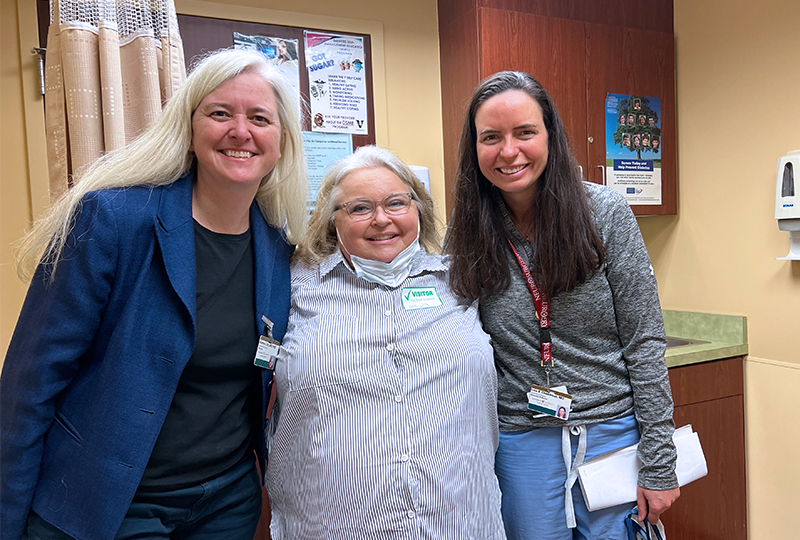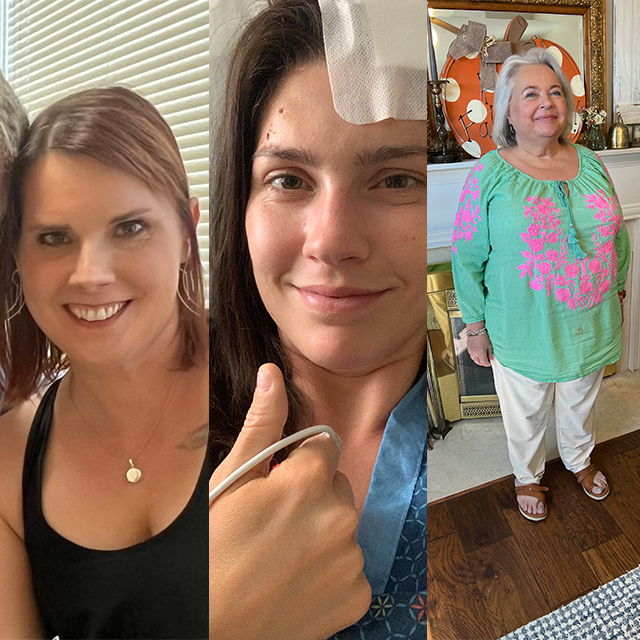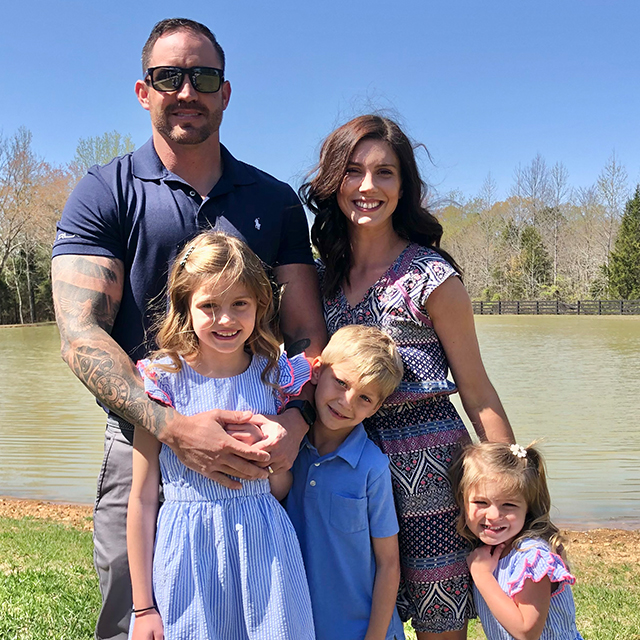Paula Richey went for a weigh-in and came away wondering if she had Cushing syndrome.
Paula Richey was disappointed when her weight loss stalled at 40 pounds after having gastric sleeve surgery. She was expecting to lose about 100 pounds following the procedure that reduced the size of her stomach.
“I felt ashamed of myself, because I’d tried a million diets and different things and so when the surgery didn’t work for me, I just felt like there was something wrong with me,” Richey said.
Then, at a post-surgical weigh-in, her advanced practice registered nurse said something that would change her life.
“She noticed the hump of fatty tissue on my upper back and asked if I had ever been diagnosed with Cushing syndrome,” she said.
Richey hadn’t, but that comment prompted her to start looking into it.
Cushing syndrome explained
Cushing syndrome is a collection of symptoms that develop in response to the body being exposed to high levels of the hormone cortisol for a prolonged period of time, whether from taking certain medications that contain cortisol or when a tumor on one of the body’s glands (most commonly the pituitary gland) causes the body to make too much of the hormone. When a pituitary tumor is the source of the elevated cortisol levels, it’s called Cushing disease.
As Richey’s care provider suggested, one of the hallmarks of Cushing disease is a fatty hump on the back between the shoulders. Other symptoms include weight gain in the face and torso, thin skin that bruises easily, wounds that are slow to heal, fatigue, muscle weakness and mood changes. It’s also common for people with Cushing to have high blood pressure, type 2 diabetes and osteoporosis.
Richey’s symptoms became severe enough that she had to retire from her beloved career as a first-grade teacher at age 55. She would get so fatigued and weak that she would have to crawl up the stairs to bed, leading the Richeys to install a stair lift in their home. Eventually even walking became too much, and Richey started using a wheelchair when out in public.
Diagnosing Cushing syndrome
“Classic Cushing symptoms — weight gain, diabetes, high blood pressure, stretch marks, weakness, sleep disruption — overlap with many other disorders that are much more commonplace. It’s really the constellation of all of these symptoms together that are needed to consider this rare disease.”
Even though Richey had many of the classic symptoms of Cushing disease, she didn’t get a diagnosis right away, given the rarity of the disease.
“If you think about it, classic Cushing symptoms — weight gain, diabetes, high blood pressure, stretch marks, weakness, sleep disruption — overlap with many other disorders that are much more commonplace,” said Dr. Andrea Utz, and endocrinologist and director of Vanderbilt’s Pituitary Center. “So it’s really the constellation of all of these symptoms together that are needed to consider this rare disease.”
Once Cushing is suspected, the next hurdle is determining where in the body the disease is stemming from. The tumors that cause Cushing disease tend to be quite small and are often undetectable on imaging, which was the case with Richey. That’s when her endocrinologist referred her for further workup, including an IPSS (inferior petrosal sinus sampling) test.
In this specialized test, an interventional radiologist threads a catheter through a vein in the groin and, using real-time imaging, guides it all the way to the pituitary gland at the base of the skull. Then blood samples are taken from each side of the gland. The test confirms whether or not the pituitary gland is the source of the problem and can also help narrow down the location of the tumor.
Fewer than a dozen centers in the U.S. offer this specialized test, none of which are in Kentucky, where the Richeys live. So they traveled to the Vanderbilt Pituitary Center in September 2021.
To accommodate patients like Richey, the Pituitary Center allows patients who are traveling for care to be seen in fewer visits.
“They meet with Dr. Utz in the morning and then we send the patients to get some lunch while we meet as a team,” said Dr. Lola Chambless, a neurosurgeon with Vanderbilt Neurosurgery. “Then, patients meet with the surgeons after lunch to go over their surgical needs and any additional tests they’ll need.”
That meant Richey only had to travel to Nashville twice prior to surgery on Dec. 21, 2022.
Brain surgery for Christmas
Given the location of the pituitary gland at the base of the skull, surgery requires a team approach to access the area through the nose. Chambless worked in tandem with an ear, nose and throat specialist on Richey’s procedure.
“This surgery is interesting, because we’re going in through the nose with an endoscope without being able to first see the tumor on imaging,” Chambless said. “So, it’s a bit like looking for a needle in a haystack.”
The level of difficulty is why Chambless recommends patients with pituitary tumors seek treatment at a center that does a lot of these procedures.
“This is a disease that people really should travel to a center of excellence for treatment,” Chambless said. “It’s very clearly been demonstrated that Cushing outcomes are much better at high-volume centers, and we are one of the highest volume pituitary centers in the country.”
Fortunately, Chambless was able to locate Richey’s tumor, which measured just 3 millimeters, and remove it without complication.
The very next day, Richey’s cortisol levels were down. It wasn’t long before Richey was off her blood pressure medication. Slowly, her mood improved, and her energy started to return. Over time, her weight has normalized, and she is weaning off her diabetes medicine.
While it can take 18 months or longer to recover from Cushing disease, Richey says she is feeling worlds better than she had been.
“It’s such a debilitating disease and it took so much from me,” she said. “I still have a ways to go, and I know I’m going to have some permanent damage, but there’s hope now. And I owe so much of that to Vanderbilt.”

Personalized Care for Brain Tumors
Vanderbilt’s Brain Tumor program is a national leader in research and clinical trials, providing access to innovative treatment options and technologies not available elsewhere. Vanderbilt’s team of experts works together to provide personalized care tailored to each patient’s unique needs, and patient care coordinators are there to help every step of the way.




